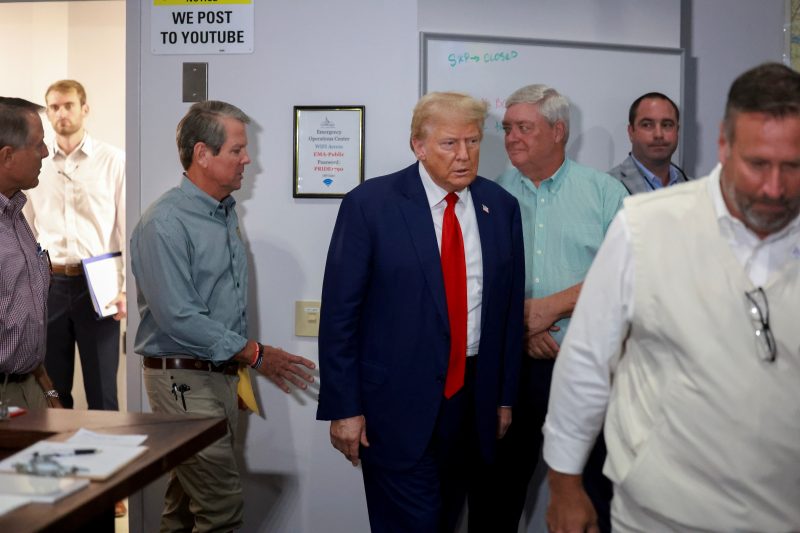Throughout his time in office, President Trump has consistently demonstrated a pattern of spreading misinformation, especially during natural disaster responses. His handling of these situations has raised concerns and sparked debates over the potential impact of false information on public safety and disaster relief efforts.
One major instance of Trump’s misinformation peddling was during Hurricane Maria in 2017, which devastated Puerto Rico. In the aftermath of the hurricane, Trump falsely claimed that only a small number of people had died as a result of the storm, downplaying the much higher death toll later confirmed by official reports. This misinformation not only misled the public but also hindered the allocation of necessary resources and support to the affected areas.
Similarly, Trump’s response to the California wildfires has been marked by misleading statements and inaccuracies. He has repeatedly blamed forest mismanagement as the sole cause of the wildfires, ignoring the complex environmental factors and climate change that contribute to the increasing severity of these disasters. By oversimplifying the issue and spreading misinformation, Trump has undermined efforts to address the root causes of wildfires and implement effective prevention measures.
In addition to natural disasters, Trump’s handling of the COVID-19 pandemic has been characterized by misinformation and contradictory statements. From downplaying the severity of the virus to promoting unproven treatments, Trump’s dissemination of false information has fueled confusion and mistrust among the public, hindering efforts to curb the spread of the virus and protect public health.
The implications of Trump’s misinformation in natural disaster responses are significant. By eroding public trust in official sources of information and promoting conspiracy theories, Trump has created a climate of uncertainty and division that hampers effective disaster preparedness and response efforts. In times of crisis, accurate and timely information is crucial for ensuring the safety and well-being of individuals and communities, and any misinformation can have serious consequences.
Moving forward, it is essential for leaders to prioritize transparency, accuracy, and accountability in their communication with the public, particularly during natural disasters. By providing reliable information and promoting evidence-based policies, officials can foster trust and cooperation, ultimately improving the outcomes of disaster response efforts and safeguarding the welfare of those affected by crises.
